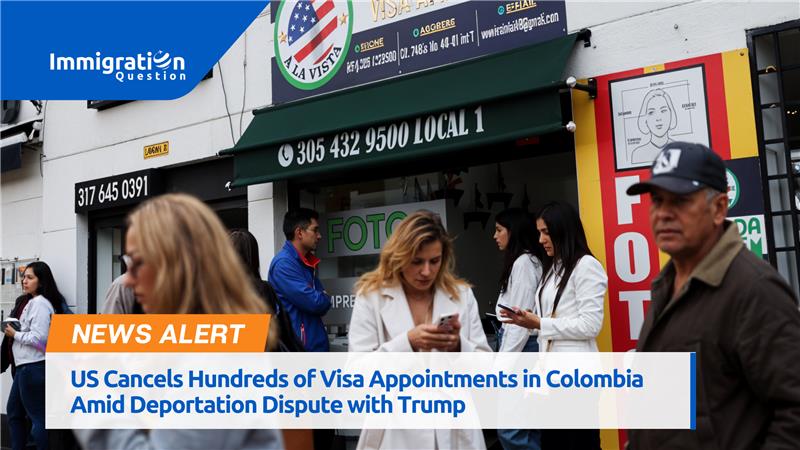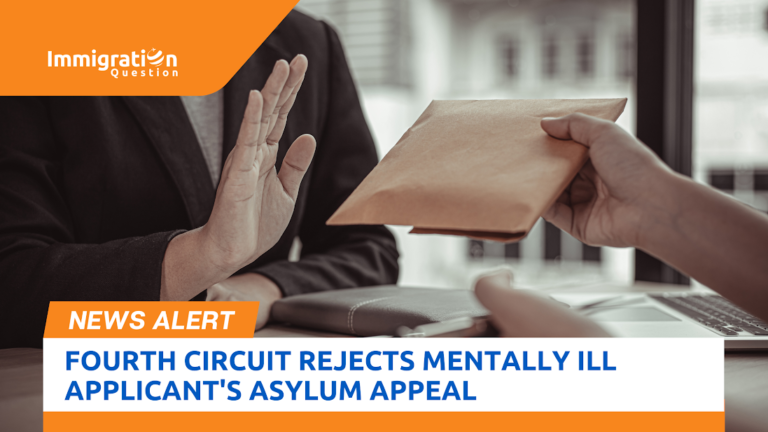Hundreds of U.S. visa appointments in Colombia were abruptly canceled on Monday, January 27, 2025, as a heated dispute between President Donald Trump and Colombian President Gustavo Petro over deportation flights escalated. The diplomatic standoff nearly triggered a trade war, an effect of the Trump administration’s stringent immigration policies.
Visa Appointments Canceled Without Warning
Colombians arriving at the U.S. Embassy in Bogotá on Monday were met with disappointment. Embassy staff distributed letters informing them that their visa appointments had been canceled “due to the Colombian government’s refusal to accept repatriation flights of Colombian nationals.” The cancellations left many frustrated, as those affected may face months of delays before securing a new appointment.
The State Department has yet to clarify when the embassy would resume issuing visas.
The Root of the Dispute
The controversy began over the weekend when Colombia refused to allow two U.S. Air Force planes carrying deported Colombian nationals to land in the country. In an early Sunday message on X (formerly Twitter), President Petro declared he would not permit such flights until the United States adopted protocols ensuring the “dignified treatment” of deportees.
Petro’s remarks were fueled by a video he shared, showing deportees arriving in Brazil with leg shackles. He criticized the act as dehumanizing, and his refusal to accept the flights shows a bold stance against the Trump administration’s approach to deportation.
President Trump’s Retaliation
President Trump responded on Truth Social, threatening severe economic consequences for Colombia. He announced plans to impose 25% emergency tariffs on Colombian exports, revoke U.S. visas for Colombian government officials, and enhance customs inspections on goods from the South American nation.
Trump’s response sends a clear message that nations unwilling to comply with U.S. deportation policies would face serious repercussions. The White House also stated that the suspension of visa appointments at the U.S. Embassy in Bogotá would remain in place until deportation flights resumed.
Resolving the Dispute Temporarily
During the intense exchange, Petro responded to Trump’s punitive measures, condemning his actions and attitude. He also announced that Colombia would impose a 50% tariff on U.S. goods in retaliation. After negotiations, tensions finally eased.
The White House announced that Colombia had agreed to resume accepting deportation flights and comply with Trump’s terms, including the use of U.S. military planes for deportations. In return, the U.S. put the proposed tariffs on Colombian exports on hold. However, enhanced customs inspections and visa restrictions on Colombian officials will remain until the first group of deportees successfully lands in Colombia.
The agreement marks a diplomatic victory for the Trump administration.
Implications of the Resolution
The standoff has once again proved the Trump administration’s willingness to wield immigration policies as a tool for broader political leverage. State Department spokesperson Tammy Bruce confirmed this on Monday, stating that the U.S. would take decisive action against countries failing to meet their deportation agreements.
While the diplomatic spat may have temporarily subsided, the incident has left scars on U.S.-Colombia relations. The suspension of visa services and the implications of the deportation conflict could have lasting effects on trade relations between both governments.
The trade and visa threats show the United States’ readiness to escalate disputes to protect its policies, even at the risk of straining bilateral relations.
Lingering Challenges in Bogotá’s U.S. Embassy
The canceled visa appointments have left many Colombians disheartened and anxious about their travel prospects. Many applicants voiced their frustrations, complaining about the lack of communication and the long wait times ahead.
For now, Colombians hoping to visit the U.S. should wait for updates from the State Department.
To stay informed, be sure to check our news section regularly for the latest immigration updates and key developments as they unfold.










